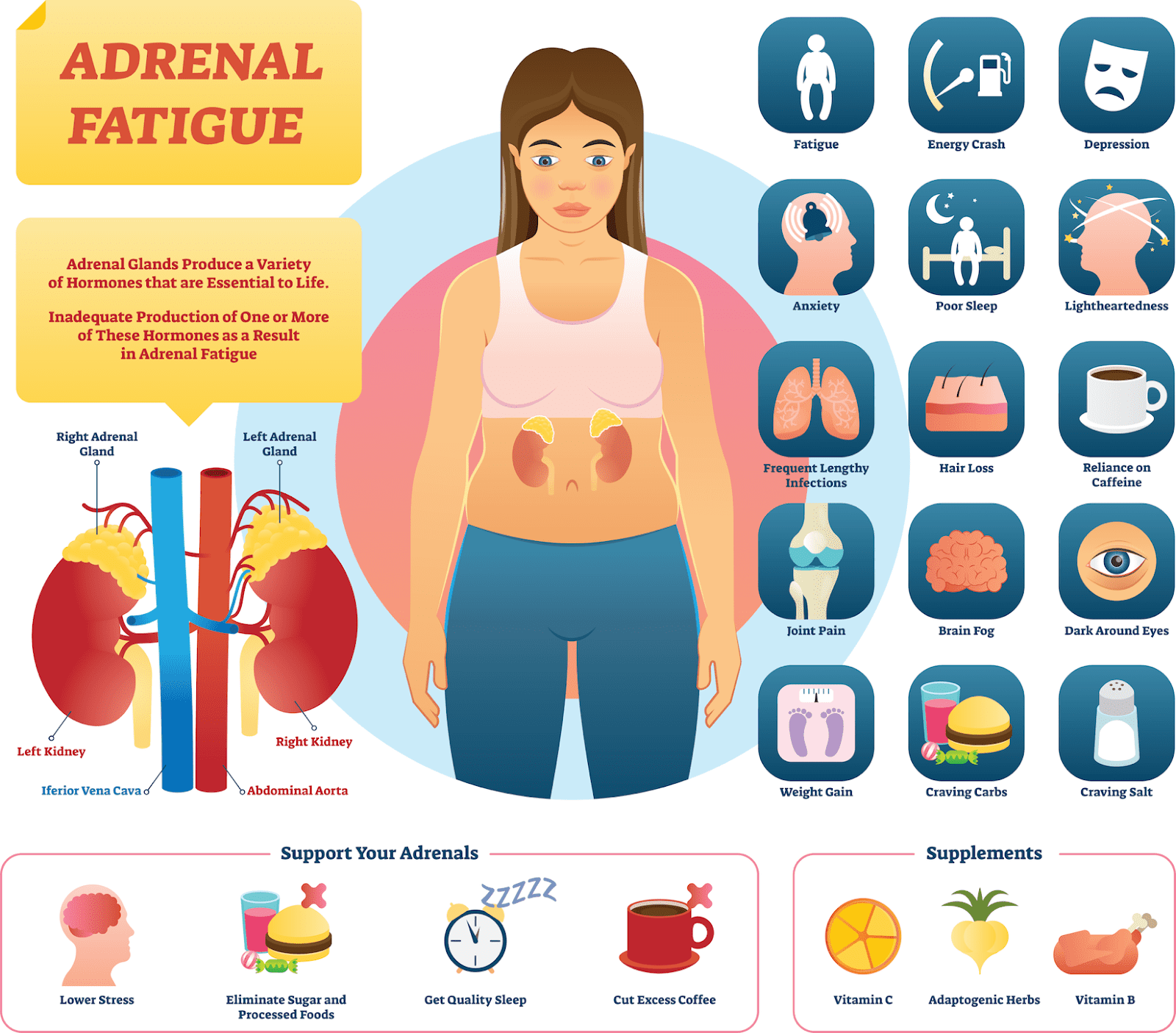
It’s not dramatic. It’s not sudden. You wake tired but can’t fall asleep—that’s how the adrenal story often begins. You push through mornings. You crash mid-day. Nights feel wired.
You blame sleep. Or stress. Or work. But what’s off isn’t the schedule. It’s the signal. Cortisol used to guide your rhythm. Now it arrives at the wrong time—or not at all.
And when that rhythm breaks, your body forgets when to rest and when to rise.
Cortisol doesn’t only respond to stress—it manages everything from wakefulness to inflammation
You think cortisol is the “stress hormone.” But cortisol doesn’t only respond to stress—it manages everything from wakefulness to inflammation. It keeps blood sugar stable. Keeps immune response quiet. Keeps blood pressure balanced.
When cortisol rises too long, everything feels urgent. When it drops too low, everything feels impossible.
Adrenal health isn’t about energy—it’s about direction. Without cortisol’s timing, the body drifts.
When stress becomes constant, cortisol becomes confused
You adapt. You push through. But when stress becomes constant, cortisol becomes confused. It stays high. Then crashes. Then disappears.
You don’t feel steady. You feel stuck between fatigue and anxiety. Nothing helps for long. Food doesn’t restore. Sleep doesn’t deepen.
This isn’t burnout from overwork. It’s feedback from a gland that can’t find its pace anymore.
Your body forgets how to respond to calm
At first, stress feels energizing. Later, it just feels heavy. Your body forgets how to respond to calm. Even silence feels sharp.
Cortisol was supposed to peak in the morning, fade by night. Now, it rises at 2AM. Keeps you alert when you need rest.
You’re not overreacting. You’re over-signaled. That’s an adrenal system asking for reorientation.
Adrenaline was meant to be rare—but now it’s constant
Your hands shake. Your heart races. You can’t sit still. Adrenaline was meant to be rare—but now it’s constant. The body believes it’s always in danger.
You miss meals. Skip pauses. And the gland responds with too much of what used to be helpful. Until it isn’t.
You feel alert, but not alive. Awake, but not present.
Salt cravings can be a message, not just a habit
You want chips. Or pickles. Or olives. Salt cravings can be a message, not just a habit. The adrenal glands help regulate sodium. When aldosterone dips, your body wants salt.
This isn’t weakness. It’s compensation. A signal that your mineral balance might be off. That hydration isn’t landing where it should.
Listen to the craving. It often speaks before symptoms.
Low cortisol doesn’t always mean collapse—it means miscommunication
You still function. You still show up. Low cortisol doesn’t always mean collapse—it means miscommunication. Your body moves, but slower. Thinks, but foggier. Digests, but later.
You don’t break down. You just operate at half capacity. Quietly. Repeatedly.
And no one notices. Because you’ve learned to survive inside the misfire.
Blood sugar drops more easily when adrenal balance is off
You eat, then feel shaky. Or dizzy. Blood sugar drops more easily when adrenal balance is off. Cortisol helps stabilize glucose. Without it, insulin overperforms.
You snack more. Crash harder. Your brain feels frantic—not hungry. Just uncertain.
And this creates more stress. Which worsens the imbalance. Which restarts the cycle.
Thyroid and adrenal systems often fall together
You treat your thyroid. But feel no better. That’s because thyroid and adrenal systems often fall together. Low cortisol slows thyroid function. Even replacement hormones can’t fix the fatigue.
You fix one. But not both. And your energy doesn’t return. Your body waits for safety—not just support.
Until it trusts the signal, it won’t move forward.
Healing the adrenals isn’t about supplements—it’s about rhythm
You try adaptogens. You try resets. But healing the adrenals isn’t about supplements—it’s about rhythm. Sleeping when it’s dark. Eating before stress. Saying no before collapse.
Your glands don’t need stimulation. They need stability. Predictability. And time.
You can’t rush adrenal recovery. You can only stop rushing everything else.
